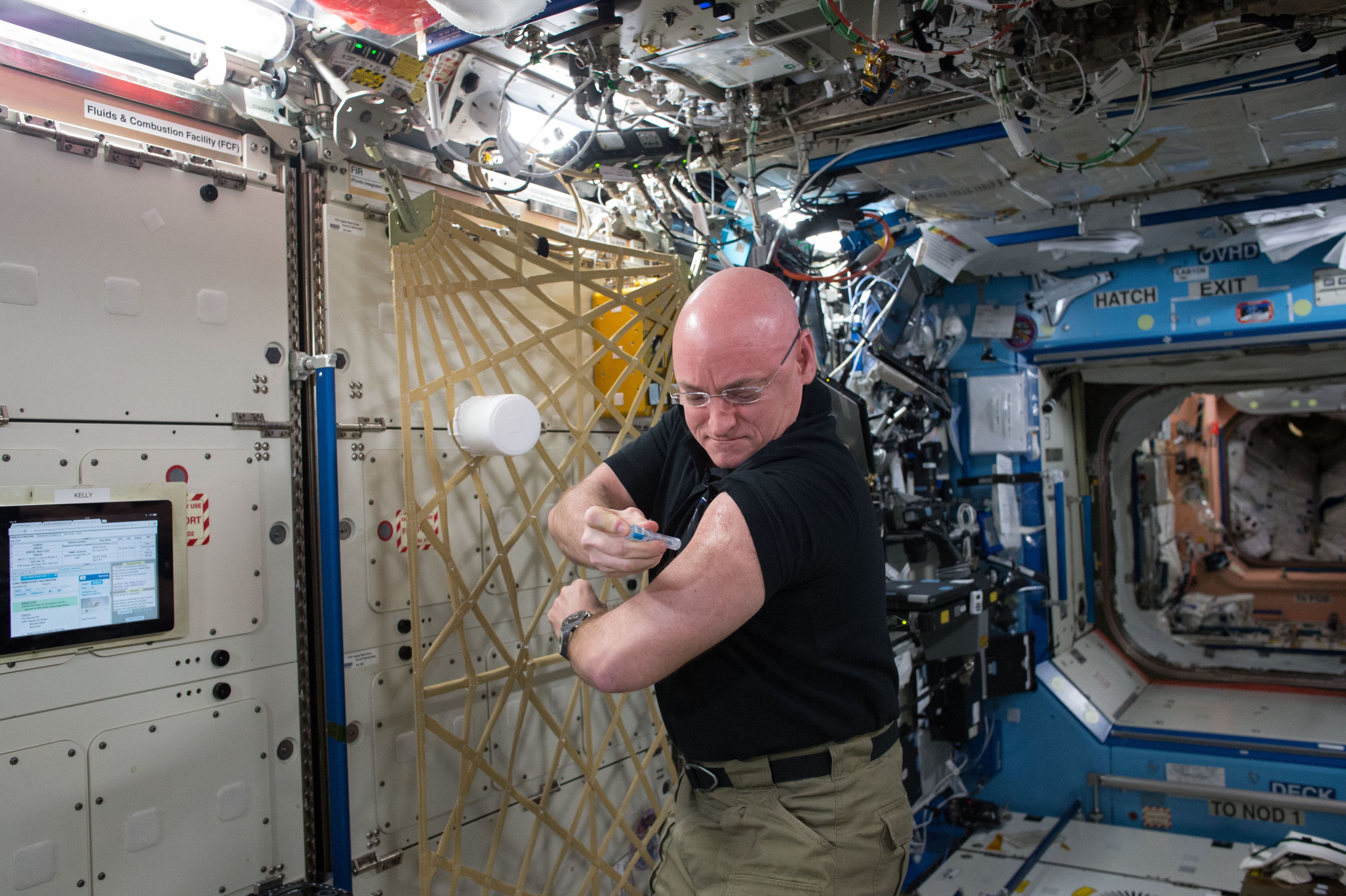Research by NASA on identical twins has revealed that being in space changes human genes. Scott Kelly spent 340 days on the International Space station, while his brother Mark remained on earth as a control subject. However 7% of Scott's genes, the so-called space genes, pointed to possible longer term changes related to his immune system, DNA repair, mitochondria and bone formation. "This is thought to be from the stresses of space travel, which can cause changes in a cell's biological pathways and ejection of DNA and RNA. However recent research has shown that identical twins are rarely genetically identical.
'Space genes': NASA confirms space travel changes DNA - even upon return to Earth
Kirill Kudryavtsev, AFP/Getty ImagesThe stresses of space travel can alter a person's genetic makeup, NASA says, and the changes can linger even after a return to Earth. Call it the effects of "space genes," or DNA that doesn't return to normal after a sojourn in space. Investigators found about 93% of astronaut Scott Kelly's genes returned to normal after spending one year at the International Space Station. But the other 7% remained changed, even after Kelly returned to earth, signaling space travel can have long-term changes on a person's body. The findings are part of the Twins Study, which seeks to explore the physical and psychological effects of space travel.

0 comments:
Post a Comment